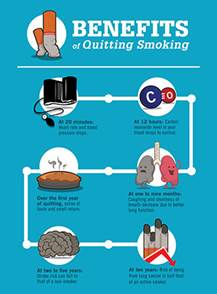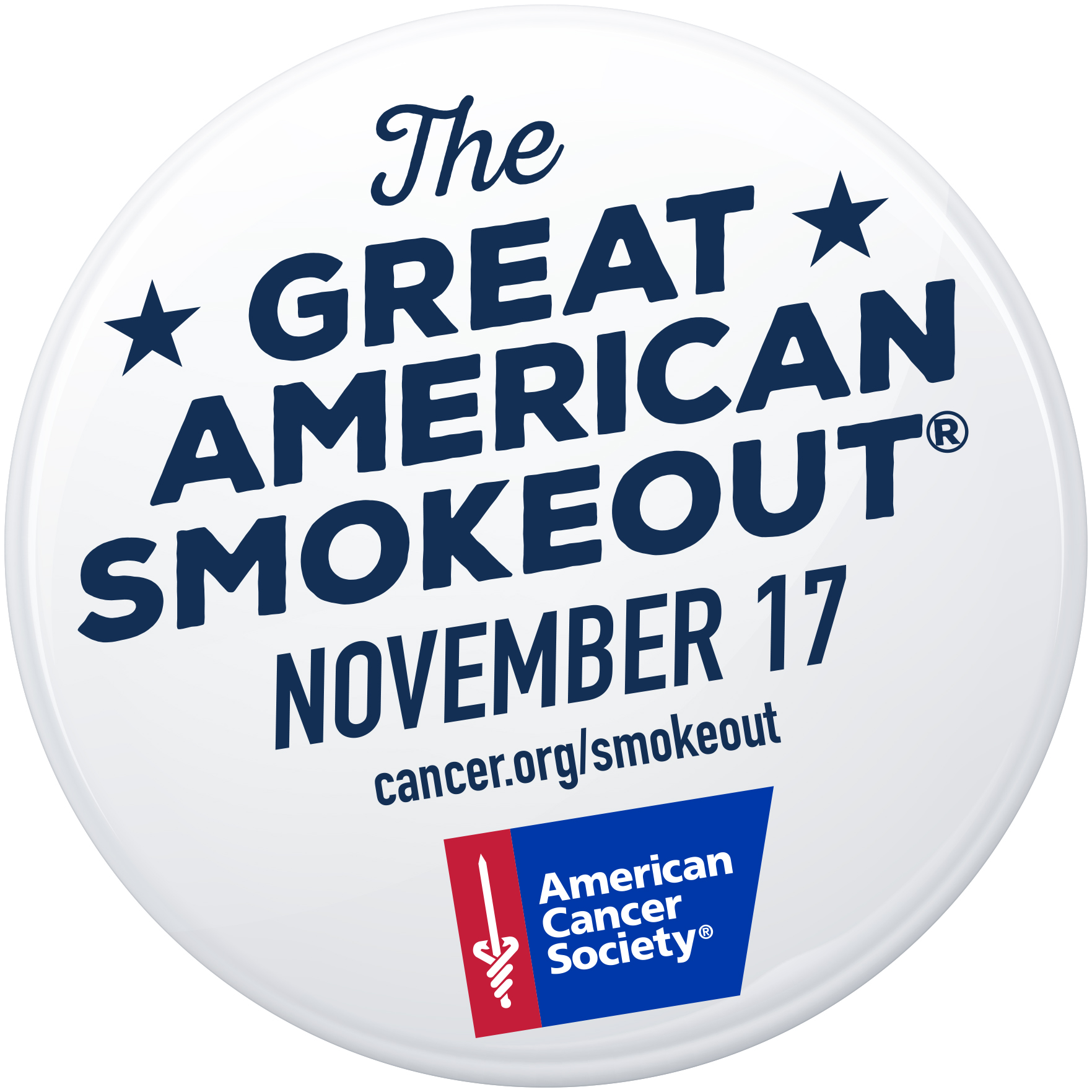
Quitting Tobacco: A Marathon, Not a Sprint
Deborah J. Hendren, CSAPC – Substance Abuse Prevention Manager
If you smoke, you’ve probably heard that quitting is beneficial at any age. You’ve also probably heard quitting is good for your health, can make you feel and look better, and saves you money.1
You also know, from personal experience or the experiences of family or friends, that quitting is very challenging. Take heart. Smokers can and do quit smoking. In fact, today there are more former smokers than current smokers. 2
Just when do the benefits of stopping smoking kick in? Almost instantly.3
- At 20 minutes: Your heart rate and blood pressure drops.

- At 12 hours: The carbon monoxide level in your blood drops to normal.
- At two weeks to three months: Your circulation improves, and your lung function increases.
- At one to nine months: Any coughing and shortness of breath you may have decrease due to better lung function. Your risk of lung-related infection is reduced.
- Over the first year of quitting, your energy level increases, breathing becomes easier, and sense of taste and smell return.
- At one year: Your excess risk of coronary heart disease is half that of an active smoker’s.
- At two to five years: Your stroke risk can fall to that of a nonsmoker.
- At five years: Your oral, throat, esophageal and bladder cancer risks are cut in half compared to active smokers. Cervical cancer risk falls to that of a nonsmoker.
- At ten years: Your risk of dying from lung cancer is half that of an active smoker. Your risk of larynx (voice box) cancer and pancreas cancer decreases.
- At 15 years: Your risk of coronary heart disease is the same as a nonsmoker’s.
Quitting is more than a matter of will power. Smoking is a chronic illness that involves a physical addiction and a powerful emotional addiction. Nicotine is a highly addictive and powerful drug. Many tobacco products are perfectly manufactured to give you enough of it to ensure you are hooked.4
Together, these powerful addictions are tough to overcome. Both the physical and emotional addictions need to be addressed. Developing a quit plan is the most effective way to quit – one that is personalized, involving education, counseling, and often medicines. There are also more and better tools to help people quit. Support comes in numerous modes:
- Telephone smoking-cessation hotlines
- Stop-smoking groups
- Online quit groups
- Counseling
- Nicotine replacement products
- Prescription medicine to lessen cravings
- Guide books
- Encouragement and support from friends and family members
Using two or more of these measures to quit works better than using any one of them alone. For example, some people use a prescription medicine along with nicotine replacement. Other people may use as many as three or four of the methods listed above.5
Telephone stop-smoking hotlines are an easy-to-use resource, and they are available in all states. North Carolina offers the Quitline at 1-800-QUIT-NOW (1-800-784-8669) and is open 24 hours a day, 7 days a week. Depending on your health insurance plan, you may qualify for free nicotine replacement therapy to include transdermal patches or gum.
 On November 17, 2016, the American Cancer Society will hold its Great American Smokeout — an annual event dedicated to curbing the costly habit of cigarette smoking. The event, which is held each year on the third Thursday in November, provides smokers with a specific date to mark their calendars and move on—to draw a line between the smoky past and a clear future.
On November 17, 2016, the American Cancer Society will hold its Great American Smokeout — an annual event dedicated to curbing the costly habit of cigarette smoking. The event, which is held each year on the third Thursday in November, provides smokers with a specific date to mark their calendars and move on—to draw a line between the smoky past and a clear future.
Need more motivation?
- Over time, you can get back years of life that would otherwise be lost if you keep smoking. By quitting, you’ll reduce your risk of diabetes and help your heart, lungs, and blood vessels work better.
- You’ll save money. Start out by figuring out how much you spend. Multiply your smoking costs per year by the number of years you’ve been smoking. You may be surprised to find out how much money you could be saving.
The average pack of cigarettes in NC costs $5.81. The average person smokes about one pack per day, which costs:
$40.67 per week
$127.72 per month
$2,120.65 per year
- You will reduce risk for family members. Smoking hurts those around you. Children who breathe second hand smoke are more likely to develop bronchitis, pneumonia and ear infections.3
Ready to give it a try? Thursday, November 17 may be the perfect time for some to stop smoking and to start looking forward to the benefits of living tobacco-free.
Remember, you don’t have to do it alone – and your chance of success is much better with a quit plan and supports in place. Quitting even for one day is an important step towards a smoke-free life. Take it one step at a time. The most important step is the first one — making the decision.6
More information:
- The Great American Smokeout
- Tobacco use among youth
- How to successfully quit or call 1-800-Quit-Now
Interested in bringing this topic to your students?
- The Poe Center offers substance use prevention programs for 3rd – 5th grades and adults. Call (919) 231-4006 or go on line to schedule a program today.
Choices & Consequences
Grade Level: 5th | Program Length: 60 minutes
Students will learn the truth about the dangers of inhalants and the gateway drugs (tobacco, alcohol and marijuana) through an interactive classroom game modeled after the popular television program, Are You Smarter Than a 5th Grader? The dangers and consequences associated with use and abuse will be discussed through the use of exhibits, BrainPop videos and interactive activities. Students will conclude the session with participation in an activity reinforcing refusal skills.
- For the Classroom: Tobacco and Hands-on Science. Take this topic to your students with this educational activity.
Resources:
1. Join the Great American Smokeout. Harvard Health Publications.
2. U.S. Department of Health and Human Services. The Health Consequences of Smoking—50 Years of Progress: A Report of the Surgeon General. Atlanta: U.S. Department of Health and Human Services, Centers for Disease Control and Prevention, National Center for Chronic Disease Prevention and Health Promotion, Office on Smoking and Health, 2014 [accessed 2015 May 21].
3. Help to Quit Smoking. Froedtert & Medical College of Wisconsin.
4. Nicotine (Tobacco Addiction and Abuse). MedicineNet.com.
4. American Cancer Society’s Great American Smokeout. Comtrea.
6. Smokers: Make the Choice to Improve Your Life Today. American Cancer Society.
